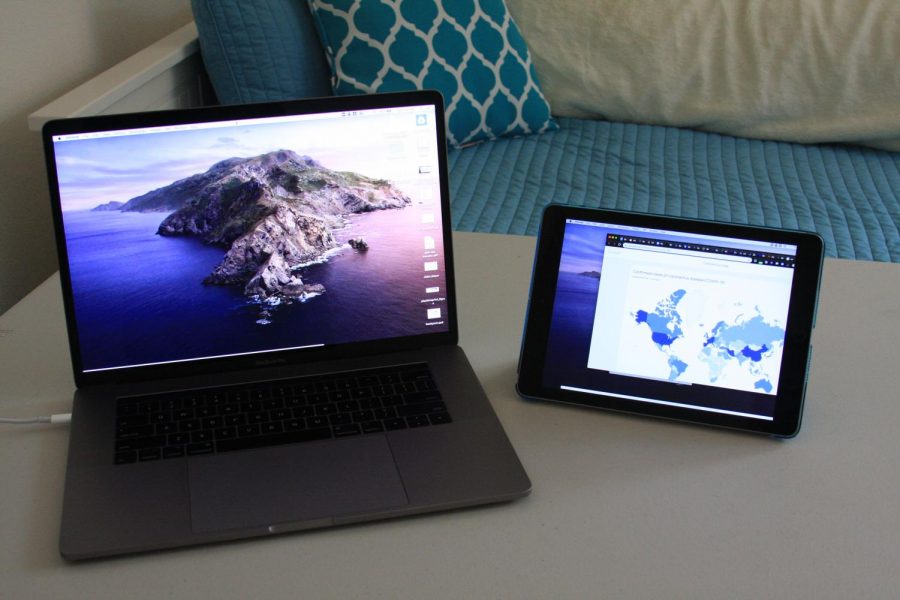From the first MacBook operating system (OS) to macOS Catalina, Apple has continued to add new features, some of which do not please everyone.
Apple is known for its simplistic, sleek user interface, and they have continued to improve their software from OS X Leopard to macOS Catalina. However, macOS Catalina lacks some features that may contribute to student boredom, especially during this time in quarantine due to COVID-19.
One of the characteristics of the newest Mac update, macOS Catalina, is the inability to use 32-bit applications. Catalina now only supports 64-bit apps, which may upset some users.
“When macOS Catalina users are unable to use 32-bit apps, they probably don’t feel good because freedom is epic,” said Jack Neth, a freshman.
A “bit” is short for “binary digit,” which is the base unit of information that builds computers. When a computer uses a 64-bit processor, that means it is able to process 64 bits of data at once, whereas a 32-bit processor can only process bits at half the speed. Though a 64-bit processor is generally faster, there are still a handful of games and apps that have not transitioned to the advanced 64-bit.
Traditionally, these 32-bit apps are still accessible with 64-bit processors. Macs have been using a 64-bit processing system since 2009, but with Catalina, they announced that they would no longer be supporting the use of 32-bit apps, as they want to utilize the software to the fullest. This has pressured users to use only 64-bit apps, which is not optimal for most, such as sophomore Kylie Sun.
“In general, I don’t like many changes and differences in the OS that I use, since it makes me unfamiliar with the software. Sometimes it’s a little frustrating to deal with. For Catalina, I dislike the fact that I won’t be able to play or use any 32-bit apps,” Sun said.
Sun and many others are skeptical of new updates, as change is hard. On the other hand, Kailey Hua, a sophomore at PROOF School in San Francisco, believes it may be time to make a change.
“Right now, most 32-bit apps are ancient games like ‘osu!,’ where most of the player base has already recognized that Windows has better computing power and shifted over already. If Mac users still wanted to play 32-bit games, there’s already Boot Camp, so I don’t think there will be too big of an impact,” Hua said.
Boot Camp is a software that allows users to download and use the Windows software on their MacBooks. However, this can prove to be a hassle. As a solution, many prefer to just use a non-Mac computer instead.
“I think the benefits of using a non-Mac software is versatility and low latency. You can run a lot more things on Windows than you can on Mac, and the same goes with Android and iPhone. But since Mac has much higher security than Windows, people who care a lot about that will still prefer Mac,” Hua said.
Indeed, a large number of people prefer to still use Mac software. Not only is the design appealing, but it is also more secure from malware. Additionally, Mac software has benefits for programmers, as it uses a Unix operating system, which is far more versatile.
Both the MacBook and Windows have their benefits, but long-time Mac users must struggle through the exclusively 64-bit software, which may inconvenience those who aim to use 32-bit apps during our time in quarantine.
“I think the inability to use 32-bit apps on a Mac will almost certainly affect Apple negatively,” Hua said.












